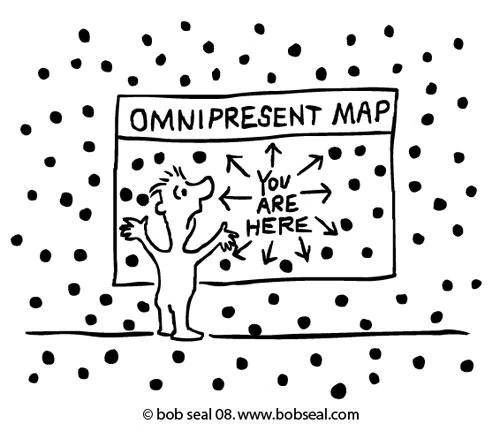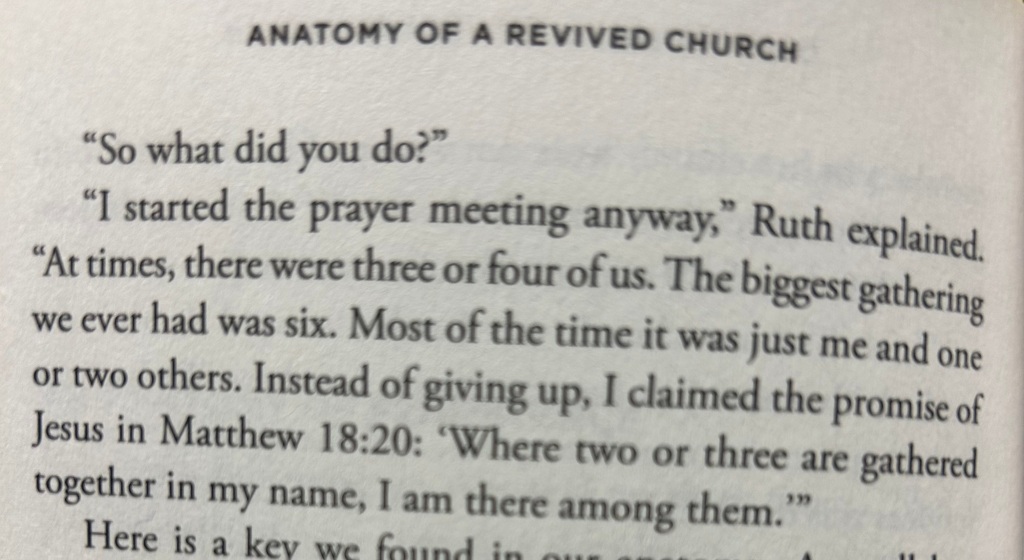The Promise of Christ’s Presence
Fill in the blank:
“For where two or ___ gather in my name, there am I with them”.

Did you say “two or more” or “two or three”?
Most people say “more” but a few say “three.” It can be an example of the Mandela effect. It could also be the result of pastor completely misinterpreting the passage. This phrase “two or more” has become so ubiquitous that the misquoted phrase even exists as a category on the Open Bible website. https://www.openbible.info/topics/where_two_or_more_are_gathered_in_my_name_there_will_i_be_also
I exclusively hear this verse used in the context of people gathering together for worship, prayer, study, etc… primarily used to claim the promise of God’s presence because a group has gathered. So, “more” makes sense if you think that’s what the verse means.
But it’s not. And one of the reasons we know this is because the actual verse says three not more. From Matthew 18, verse 20: “For where two or three gather in my name, there am I with them.”
Consider the theological implications of claiming God is present when “two or more are gathered.” That’s also, perhaps unintentionally, saying that God isn’t present when a person is alone. Because when this verse is mentioned, it’s most often in the context of claiming a promise. But we can also claim the promise that God is there when one person is present. This, in fact, is the truth scripture teaches.
Who can hide in secret places
(Jeremiah 23:24)
so that I cannot see them?”
declares the Lord.
“Do not I fill heaven and earth?”
declares the Lord.
During the COVID-19 shut down, people all over the world were on their couches at home trying to worship God using an online platform. Many of those people were alone. Was God not present with them, alone, in their living rooms?
Is God not with you when you are praying alone, working alone, driving in your car alone?

Historically, the Church has been quite good at taking verses out of context. With the best of intentions, its simply a misunderstanding. With the most egregious, it’s to prove a belief already held, choosing to manipulate actual truth, attempting to conform it to make a point with an outside source.
The theological implications of continuing to use this verse for this purpose of feeling better when there is a small group is also to say that God is not omnipresent. In an culture where the literal reading of Scripture is more prevelant than not (that’s a post for another time) there isn’t much other conclusion we can come to when we read it that way. If we read it flatly, out of context, it’s also saying what it’s not saying; that God isn’t present when there is only one person. And the rest of Scripture does not support this at all.
Nothing in all creation is hidden from God’s sight. Everything is uncovered and laid bare before the eyes of him to whom we must give account.
(Hebrews 4:13)
So how are we to use and understand this verse? This should be obvious, but it’s clearly not since this verse is misused so frequently: you start with reading the verses before and after it. In the verse after, it starts with “Then Peter came…” With the use of the word “Then” we conclude there is natural break, ending the section in verse 20. For proper context, we look to the verses right before it. Which isn’t related to worship or prayer meetings AT ALL, but rather instruction for going to a person who you feel has wronged you, and then if needed, bringing others into the conversation.
The Greek word that is translated to “three” is τρεῖς. And it’s key here, because it doesn’t infer “more”, but is a direct reference to the need for two or three people in the case of dealing with conflict. Jesus says in verse 16, instructing us how to handle people who’ve sinned against us, by saying, “But if they will not listen, take one or two others along,”
Thus, where “two or three” come from. Jesus is teaching that when a person has sinned and they need to be confronted in that sin, taking one or two others along when they don’t repent after you have spoken to them is the next step. And if those one or two agree with you, Jesus is assuring us that he is present when two or three agree (v. 19 affirms this as well).

He is before all things, and in him all things hold together.
(colossians 1:17)
I understand the desire to use a broader brush where this verse is concerned. It’s not like it technically untrue. But is it untrue that he isn’t present when less are worshipping him. Correcting the use of this verse, especially when it communicates something that isn’t true, is more important than wanting to use it as a quick and almost pithy phrase to claim a promise. Christ is present in worship where multiple people are gathered. That’s because he is everywhere, all the time, no matter how many are together, from one to one thousand and beyond. To claim the promise of Christ’s presence by using the Matthew 18 verse isn’t helpful, because of the implied reverse. You can use any of the verses I’ve listed here in this post to make this point.
His eyes are on the ways of mortals;
(Job 34:21)
he sees their every step.
We do not need to claim the promise of God being present ONCE we do something.
We can claim that promise because of who God is, not because of what we have done. We don’t need to gather two or three so Christ will be present in worship. He’s already there.